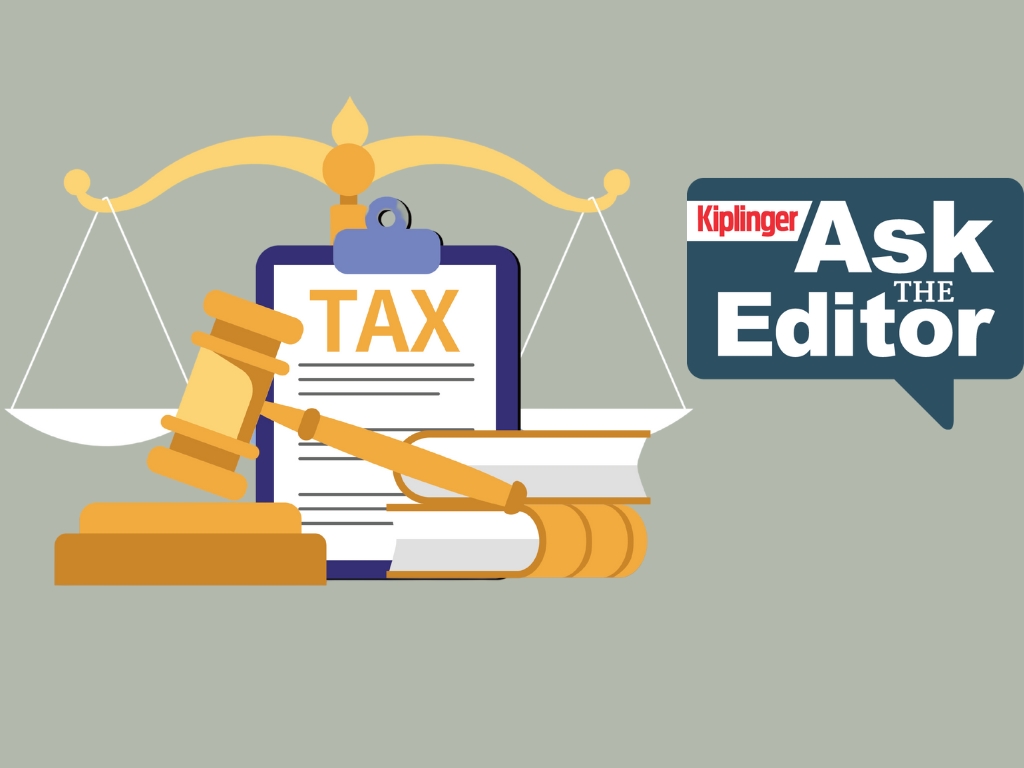Small Businesses Should Jump on CARES Act Benefits Now
I've never seen anything like the CARES Act for small businesses. Here's how to take advantage of this economic stimulus opportunity.


I like to think that after decades of legal and tax advice for small businesses, there’s not much that can surprise me these days.
But in the wake of the largest economic stimulus bill in the history of our country, I’m stunned — in a good way.
Like many of us, I’m in awe of this bill, namely how quickly it passed, the size of it, and most of all the speed at which this thing is actually getting going. There’s a lot of good news in the CARES Act for small businesses, but it takes some sorting through to figure it all out.

Sign up for Kiplinger’s Free E-Newsletters
Profit and prosper with the best of expert advice on investing, taxes, retirement, personal finance and more - straight to your e-mail.
Profit and prosper with the best of expert advice - straight to your e-mail.
While talk swirls around possible further action by Congress, which many people, including me, think will be absolutely necessary, small businesses don’t have the runway to wait. The time is now to take advantage of this rare good news we’ve just received.
I’ve spent the last few days reading and rereading every page of the CARES Act, in all three iterations it went through. I even recently hosted a webinar to help my own clients understand what they should be doing to ensure their businesses make it through this pandemic.
The good news is that help has arrived. But while the window is open, it won’t stay that way for long. Here’s what you need to do to take advantage now:
Get your books in order ASAP
With the carrot of 100% forgivable loans hanging in front of you in the form of the Small Business Administration’s Paycheck Protection Program, your instinct will be to apply for them immediately. But remember that the loans enabled by CARES will require two applications: one to get the money, and one to be forgiven.
To do both, you need to have your accounting up to date and in order. Yes, the government wants to provide money for small businesses to stay afloat. In many cases, this could go a long way toward ensuring employees stay on payroll and rent continues to be paid.
But this is not automatically free money — you will still have to prove that you qualify for forgiveness. The anticipation is that 75% of these loans will need to go toward payroll to qualify for forgiveness. How are you going to keep track of that?
My best advice is simple: Start a separate bank account to keep track of all your pandemic transactions. It’ll be a pain to change every business-related autopay, but you’ll reap the gains when it comes time to make the argument that you owe nothing in return.
Be brutally honest about what you’ll need, and ask for it
The truth is that most businesses are going to need more than 10 weeks payroll to get through this pandemic. The economy will not be restarted by Easter, and it looks like it will take a lot longer than that.
There are a lot of tools popping up, like this calculator, that can help you to determine just how much money you’ll actually need. It might end up being a big number — that’s OK. If you’re prepped and working with your accountant or financial adviser, you can and should ask for that big number with the confidence that it will be forgiven and sustain your business.
Now, apply for the PPP
In all of my experience working with the Small Business Administration (SBA), I don’t think I’ve ever seen a form that’s this simple.
Starting today (April 3), the SBA is working with banks to get this money out to those who need it as quickly as possible, and frankly it’s something I’ve never seen before and would be surprised to ever see again. You’ll apply for the loans through a lender, and that lender will receive a fee for providing the loan to you. And that’s OK. This is not a bailout to banks; this is an incentive to enable a massive movement of capital through an infrastructure that otherwise wouldn’t have any way to do it.
But as I mentioned above, remember that the Paycheck Protection Program (PPP) is a two-step process: first the loan, then the forgiveness.
You should jump on the PPP, but with eyes wide open and all your ducks in a row.
Don’t forget disaster loans
While the PPP will go a long way for many small businesses, things aren’t just going to return to normal right away.
The CARES Act has a lot of good news, including the fact that the PPP will build that bridge for businesses to start thinking longer term. But that doesn’t mean you should wait for the next bit of legislation — which I’m doubtful could be passed with the same speed as CARES — or that you should apply for PPP and call it a day.
SBA disaster loans are the next step, but they’re outside of CARES, backed by the SBA itself instead of lenders. That means it’s going to take time for them to come through, and probably longer than they normally would have with the huge amount of applications coming in. The upside: You can get a lot more (up to $2 million, with up to $10,000 right away), for much longer terms (up to 30 years), and at a low-enough rate that you can justify padding your rainy day fund as much as you think is needed. The downside: Unlike the PPP, disaster loans, like all other types of loans, actually require repayment.
Between PPP and disaster loans, you can start thinking about making it through 2020, as opposed to surviving the next few weeks.
Good news is hard to come by these days, but the CARES Act finally provided some for small businesses. Yet it’s no time to sit back and enjoy this bit of sun through broken clouds — small businesses must act with prudence and efficiency.
Profit and prosper with the best of Kiplinger's advice on investing, taxes, retirement, personal finance and much more. Delivered daily. Enter your email in the box and click Sign Me Up.

Bruce Willey has been working with small to midsize businesses across the country for more than a decade, helping them navigate business and tax law in a variety of situations. His services include assisting with business start-ups, operations, growth, asset protection, exit planning and estate planning.
-
 Stock Market Today: Stocks Step Back From New Highs
Stock Market Today: Stocks Step Back From New HighsInvestors, traders and speculators continue the low-volume summer grind against now-familiar uncertainties.
-
 Ask the Editor — Tax Questions on the New Senior Deduction
Ask the Editor — Tax Questions on the New Senior DeductionAsk the Editor In this week's Ask the Editor Q&A, we answer tax questions from readers on the new $6,000 deduction for taxpayers 65 and older.
-
 Do You Need Flood Insurance? I'm an Insurance Expert, and Here's Where You Can Get It
Do You Need Flood Insurance? I'm an Insurance Expert, and Here's Where You Can Get ItStandard homeowners insurance does not cover flood damage, so you might need separate flood insurance, which you can get either through FEMA or private companies. Here are the details.
-
 I'm an Investment Professional: These Are the Three Money Tips I'm Giving My College Grad
I'm an Investment Professional: These Are the Three Money Tips I'm Giving My College GradCollege grads can help set themselves up for financial independence by focusing on emergency savings, opting into a 401(k) at work (if it's offered) and disciplined, long-term investing.
-
 Five Big Beautiful Bill Changes and How Wealthy Retirees Can Benefit
Five Big Beautiful Bill Changes and How Wealthy Retirees Can BenefitHere's how wealthy retirees can plan for the changes in the new tax legislation, including what it means for tax rates, the SALT cap, charitable giving, estate taxes and other deductions and credits.
-
 Neglecting Car Maintenance Could Cost You More Than a Repair, Especially in the Summer
Neglecting Car Maintenance Could Cost You More Than a Repair, Especially in the SummerWorn, underinflated tires and other degraded car parts can fail in extreme heat, causing accidents. If your employer is ignoring needed repairs on company cars, there's something employees can do.
-
 'Drivers License': A Wealth Strategist Helps Gen Z Hit the Road
'Drivers License': A Wealth Strategist Helps Gen Z Hit the RoadFrom student loan debt to a changing job market, this generation has some potholes to navigate. But with those challenges come opportunities.
-
 Financial Pros Provide a Beginner's Guide to Building Wealth in 10 Years
Financial Pros Provide a Beginner's Guide to Building Wealth in 10 YearsBuilding wealth over 10 years requires understanding your current financial situation, budgeting effectively, eliminating high-interest debt and increasing both your income and financial literacy.
-
 You're Divorced, But the Work Isn't Over: A Guide to Five Financial Tasks to Do ASAP
You're Divorced, But the Work Isn't Over: A Guide to Five Financial Tasks to Do ASAPOnce your divorce is settled, don't waste time. You've got to tie up some important loose ends or risk losing money and facing tax consequences.
-
 Integrity, Generosity and Wealth: A Faith-Based Approach to Business
Integrity, Generosity and Wealth: A Faith-Based Approach to BusinessEntrepreneurs who align their business and financial decisions with the biblical principles of integrity, generosity and helping others can realize impactful and fulfilling success.